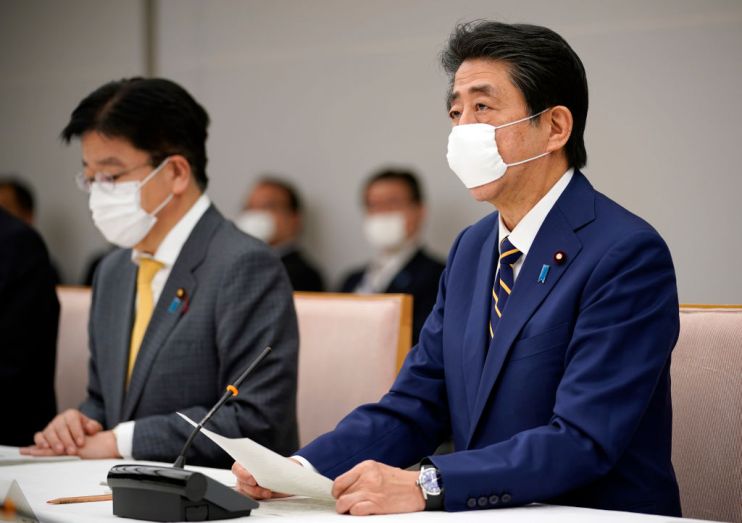Coronavirus: Japan declares state of emergency

Japan Prime Minister Shinzo Abe has declared a state of emergency in capital Tokyo and six other major metropolitan areas in an attempt to fight new coronavirus cases.
The measures, which will last a month, will cover around 44 per cent of Japan’s population.
Speaking in parliament today, the Japanese premier said: “We have decided to declare a state of emergency because we’ve judged that a fast spread of the coronavirus nationwide would have an enormous impact on lives and the economy”.
Abe also unveiled an enormous stimulus package worth $990bn (£805bn), around 20 per cent of the country’s economic output, to protect the world’s third largest economy against the pandemic.
Around $330bn will be set aside for direct fiscal spending, double what was spent during the 2008 financial crisis.
Although Japan had seemed to be in control of the outbreak, a recent increase in cases had led to heightened calls for lockdown measures to be implemented.
The number of cases has now passed 4,000 nationwide, with 93 deaths. However, in the capital Tokyo cases have doubled to 1,200 in the past week.
Sign up to City A.M.’s Midday Update newsletter, delivered to your inbox every lunchtime
Under the state of emergency, local authorities have the power to compel people to stay at home and businesses to close, but Abe said the measures would fall short of the stringent compulsions in place in other countries.
There will not be penalties in place for those who disobey instructions, meaning the enforcement of the measures will be dependent on respect for official pronouncements.
Tokyo governor Yuriko Koike said the city was in talks with the central government to decide what types of facilities it would ask to close or curtail business hours, while reiterating there would be no restrictions on buying groceries and medicine.
John Vail, chief global strategist at Nikko Asset Management, said: “Japan’s situation with the virus is less than other major countries around the world, but it decided to be cautious, especially about overloading its medical system.
“While voluntary, most all citizens in the partially shut-down areas will comply and there seems to be little panic here, but working from home and having children staying there is not often easy.
“It would not be surprising if new cases fall rapidly that Japan decides to de-escalate the restrictions, as it wants the burden on the economy, companies, people’s psyches and its fiscal balance to be as small as logically possible”.